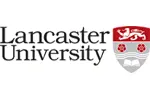This PhD offers research in nanoscience and nanotechnologies which is excelled by the experimentalists in the Quantum Technology Centre and theorists in the Centre for Nanoscale Dynamics at Lancaster.
In experimental nanoscience we offer projects in quantum technologies and development; studies of superconductor and semiconductor qubits and quantum circuits; quantum metrology; development of quantum dot systems for quantum key distribution; studies of atomic two-dimensional materials including graphene, boron nitride, hexagonal metal chalcogenides and their heterostructures; development and applications of new scanning mechanical and thermal microscopy techniques; development of novel nanostructured materials for telecommunications and for energy applications. We study nanostructures at the record-breaking low temperatures, in a sub-mK range.
In theoretical nanoscience, we offer projects in quantum transport and quantum Hall effect; mesoscopics and fundamentals of nanoelectronics; single-molecule electronics; quantum optics; quantum information processing. We develop theories of new atomic two-dimensional materials using the first principles density functional theory, quantum Monte Carlo modelling, and phenomenological theories. We develop theories of dynamics and kinetics in quantum systems in strongly non-equilibrium conditions using field theory methods. On the side of applied nanoscience, we model devices for electronics and optoelectronic applications.
We collaborate with world-leading companies including Bruker, Fiat, and Oxford Instruments. The programme is supported by a selection of training courses providing skills in modern research techniques, special scientific training and transferable skills courses.








